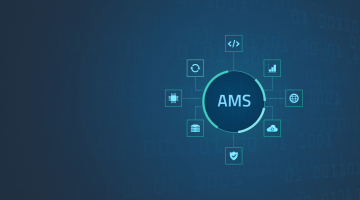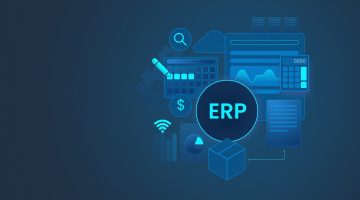
How to build custom medical insurance billing software: An ultimate guide
The global healthcare industry is expected to reach a value of $665 billion by 2028, which should encourage healthcare providers and insurers to expand their financial operations. Custom medical insurance billing software helps organize payment data, process medical claims, and manage finances error-free and efficiently across the board.
Your healthcare brand can focus on the quality of services by keeping billing operations under control. The billing software can be integrated into the existing system or developed as a brand-new product. This guide unravels how you can create a medical insurance billing solution that fits particular operations and regulatory requirements of the healthcare industry.
What is custom medical insurance billing software?
Billing processes take a solid amount of time and effort on behalf of medical staff. The time and effort that could have been dedicated to patient care. This is where advanced medical insurance billing systems step in. While they may require extra financing, they can be easily adjusted to power unique workflows and bring a huge ROI.
Medical insurance billing software allows healthcare providers to automate all activities related to billing and reimbursement. It can be integrated with electronic health record (EHR) systems to cover all services provided to the patient.
Custom medical billing software serves as a personalized technology stack. You select the features that correspond perfectly to your organization’s needs, making it a good investment for achieving efficiency and productivity for your organization.
Explore our software development services and solutions for the insurance sector.
How does custom medical billing software work?
Up-to-date software can make the complex process of medical billing accurate and effective enough to meet the specific needs of healthcare providers. Here are the main tasks it handles and the features it provides.
- Patient data input. Patients’ personal and insurance details are entered into the system manually or directly from the EHR system.
- Superbill generation. The billing software creates superbills based on patient visits to log the service history, related CPT and ICD-10 codes, and other details.
- Insurance verification. The billing software accesses insurance databases to validate patient insurance information and guarantee accuracy in claims processing.
- Claim preparation. The billing software can autonomously prepare individual claims based on the insurance policy type and description.
- Claim transmission. Claims are directed to clearinghouses, checking if they meet the standard approved by insurance companies.
- Clearinghouse processing. Clearinghouses verify the claims based on industry standards and send them to insurance companies for further processing.
- Insurance reviewing. The insurance company approves or denies claims upon review.
- Payment posting. Payment details are added to the patient’s financial records in the form of invoices.
- Denial management. In case of denial, the software determines the reason and makes necessary corrections, increasing the chance of approval.
- Reporting and analysis. The software creates reports that provide insights into revenue dynamics, claim status, payment trends, and general practice performance.
Want to improve claim processing? We offer custom health claim management solutions.
Benefits of custom medical insurance billing software
Before you discover how to build custom medical insurance billing software, you should go through the potential benefits to pull for your medical practices. Here are some particular reasons why you should consider developing and implementing such innovation.
High efficiency of healthcare billing processes
Up-to-date software can enhance the healthcare billing process all around, strengthening workflow. It can be adjusted to the organization’s needs, minimizing manual intervention, optimizing functionality, and reducing administrative burdens. This results in a simplified billing process, enabling healthcare providers to pay more attention to patient care rather than administrative activities.
Customized solutions for specialized practices
Medical practices may have different requirements, which makes generic solutions irrelevant in some cases. Healthcare billing software can help you customize features and functions according to the organization’s needs. For instance, an oncology practice uses specific billing codes and claim submission data intended for cancer treatments.
Budget-friendly billing services
Medical insurance electronic billing software can help healthcare organizations cut costs in the long run. Enhanced efficiency eliminates the need for extra staff and reduces billing errors. On top of that, insurance companies get to process transactions and reimbursements quicker, having a positive impact on the financial health of the entire organization.
Optimized Revenue Cycle Management (RCM)
The system may integrate special features that keep the entire billing cycle under control. The RCM tools help healthcare providers check the status of claims, find potential issues, and implement effective measures to avoid claim denials. This makes you closer to reaching the financial sustainability of medical practices.
Scalability and future-proofing
Custom solutions offer scalability, allowing medical practices to adapt to new trends. For instance, healthcare billing software can be easily updated in accordance with new regulations. This flexibility helps stay in tune with ever-evolving medical practices and address changes whenever needed.
Related article: How to build insurance agency management software.
What are the types of medical insurance billing software?
Healthcare providers will have to make a choice before kicking off the development process — what is the most appropriate type of medical billing system to meet their practical needs?
- An open billing system integrates with EHR to enable transparent access to patient data. Medical workers can share information across different departments seamlessly.
- A closed billing system restricts data access to a specific medical practitioner. For instance, oncologists cannot reveal billing information to other practitioners.
- An isolated billing system allows patients to manage visiting schedules and bills single-handedly. Other medical practitioners cannot access the information stored by patients.
Key features of medical insurance billing software
Aiming for high-quality medical insurance billing software requirements, here are the key features to consider:
- Payment processing and posting. Efficient payment processing and posting, with patient records updated accordingly, is a must.
- Patient information management. Enable users to collect and organize demographic data, insurance policies, contact details, and medical records for accurate billing.
- Claims management. Users can manage claims based on superbill data, making it easier to stick to insurance standards for claim submission and processing.
- Clearinghouse integration. This integration helps efficiently process, verify, correct, and forward claims to respective insurance providers through clearinghouses.
- Billing rules. You can automate billing operations based on billing rules, regulations, and individual policies.
- Analytics and reporting. Your software must generate reports to provide insights into billing activities, revenue growth, claim status, and denial frequency.
- Security measures. Stick with healthcare regulatory requirements such as the Health Insurance Portability and Accountability Act (HIPAA) to guarantee total privacy.
- Customizable operations. Allow customization of billing operations to address the specific needs and processes of the healthcare organization.
- Mobile compatibility. Make sure your software runs well on mobile devices, making administrative activities accessible on the go.
The smooth functionality of these features shapes the effect of your billing software. This is why you need specialists to invest qualified skills into your project development and make your system run like a clock.
Experiencing a lack of technical expertise and skills?
Connect with a professional team to address your project challenges.
How to build custom medical insurance billing software: Roadmap
When it comes to medical insurance billing software development, be sure to focus on careful planning and stage-by-stage execution. Follow this brief guide to create a solid mechanism for medical billing:
Analyze customer needs
To kick off the entire development process, you should first make a user requirements analysis that will serve as the foundation for future projects. To understand the weak points of medical practices, make sure to complete a set of critical activities.
- Surveys and interviews. Interview and survey doctors, nurses, and administrators to gather firsthand qualitative and quantitative data for improvement.
- Pain point identification. Highlight pain points in the current billing system and check if there are issues (claim denials or late reimbursements) that directly impact the profitability.
- Requirement definition. Specify the key requirements, such as data management, insurance verification, or reporting capabilities, upon analyzing specific requirements.
- Stakeholder involvement. Make sure to meet stakeholders’ needs to build a tailored software solution.
- Prioritization. Outline user requirements based on their strategic importance for the billing workflow.
Learn more about healthcare data analytics
Research key features
Once all project needs are clear, it’s time to determine the key features to boost usability, automate basic tasks, and ensure compliance with healthcare regulations. Users will benefit from an intuitive interface that allows them to navigate the above-listed must-have features easily. Administrators will require patient scheduling and claims tracking tools, as well as strong security measures.
Plan the workflow
You should have a development plan comprising your actions from the initial stage to the final launch of the software. To build a timeline for project realization, you need to consider specific aspects:
- Resource allocation. Organize the project budget by determining how much can be allocated for different development phases. This includes funds for hiring professional staff, software certificates, and other strategic resources.
- Team size. Estimate the size and skill set of the development team. Make sure you work with qualified and experienced specialists. Feel free to partner with a development agency or outsource separate tasks.
- Technology stack. Prepare the tech stack based on the project’s requirements. Consider the relevance, security, and scalability when selecting tools.
Code and develop
Underwriting software requires accurate coding to process claims, automate standard tasks, and provide a smooth user experience. Pay special attention to coding standards to maintain high quality and minimize vulnerabilities. The software should easily integrate with existing healthcare systems and databases, which is important for data exchange, risk management, and increased efficiency in the billing process.
Need a custom solution?
Checl out our offering on healthcare software development
Complete testing and QA
The custom medical billing software needs to be properly tested to eliminate possible flaws and ensure smooth processing. Implement functional, regression, and user acceptance testing methods to check proper functionality in various scenarios. Make certain improvements based on the test results and feedback. Quality assurance will take a precise look at the software to guarantee its reliability and accuracy before the final step.
Check legal compliance and launch
Before going for the official launch, settle on the legal compliance of your software. Focus on the highest data privacy and safety standards in the insurtech and healthcare industry.
- HIPAA Compliance. The software must act in accordance with the HIPAA regulations. This means safely procuring patient data, maintaining privacy, and using access controls.
- Reinforced security. Assess the software’s capabilities to maintain security. These may include strong firewall mechanisms, intrusion detection and prevention systems (IDS/IPS), safety guarantees, etc.
- Data encryption. Encryption helps prevent unauthorized access and maintain the confidentiality of sensitive information.
- Authorized access. Make system access restricted to responsible personnel. This way, you can prevent security breaches and guarantee the proper usage of patient data.
- Documentation control. Accurate documentation should demonstrate your software’s compliance with legal standards. This will also prove your organization’s commitment to patient privacy and security during legal procedures.
These considerations will help your custom insurance billing software earn the trust of medical personnel and patients.
Conclusion
This should give you a pretty good idea of how to create custom medical insurance billing software. Make sure to partner up with a technology provider that follows the principles of innovation, cooperation, and security to drive the process. At DICEUS, we handle project aspects from early research to product launch. Our team has years of experience and expertise in insurance software development.
Contact us to build the medical billing software that suits your needs, optimizes processes, and saves costs.
FAQ
What are the key benefits of creating custom medical insurance billing software?
The key benefits of developing a tailored insurance billing solution include high efficiency in the healthcare billing process, customization to specialized practices, budget-friendly billing services, Optimized Revenue Cycle Management (RCM), and scalability.
How does custom medical insurance billing software improve accuracy in billing processes?
The software improves accuracy in billing processes by automating calculations, reducing manual errors, granting compliance with billing regulations, and providing real-time validation of insurance details, resulting in fewer claim denials and improved revenue cycle management for healthcare providers.
How can custom medical insurance billing software enhance the security of patient data?
The billing software can enhance the security of patient data through encrypting protocols, enforcing strict user authentication measures, and maintaining audit trails. It can also integrate features for eligibility verification to ensure that only responsible personnel can access patient data.
What security measures should be implemented when creating custom medical insurance billing software?
The most common security measures include automated backups that allow data to be easily downloaded to on-premises storage devices or in the cloud. Encryption protects sensitive data from unauthorized access.
How can custom medical insurance billing software integrate with existing healthcare systems?
The digital billing software can integrate seamlessly with existing healthcare systems. This enables the data exchange between different systems, such as EHRs and practice management systems. Integration facilitates smooth workflows, reduces data repetitions, and enables quick access to patient information whenever needed.





